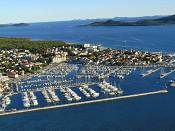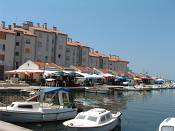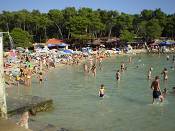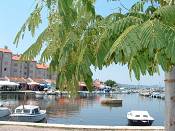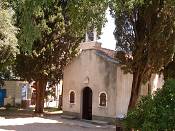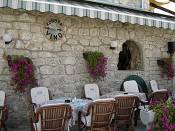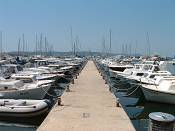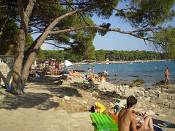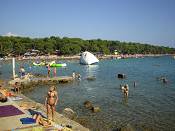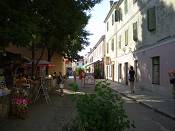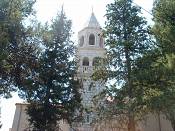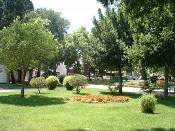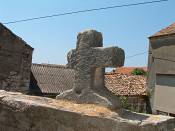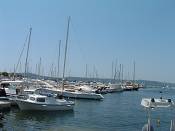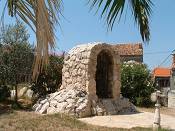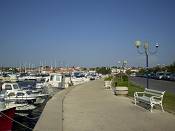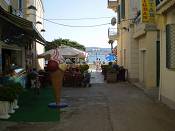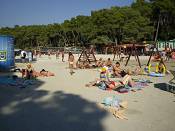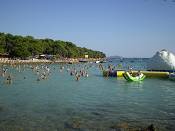Biograd - Tourist guide
BIOGRAD - Croatia, Biograd: Choose the destination for holidays and make reservations on-line. Check our offer of cities, towns, coves and islands through thousands of our photos!
Biograd is a harbour and a significant tourist resort, 29 km south of Zadar and 44 km north of Sibenik. A number of settlements and the city of Biograd are to be found on the relatively low, easy to climb shore on the Zadar maritime coastline. The town lies on a small promonotory which encloses an attractive inlet, Bosana. A little to the south is another inlet, Soline, with a large sandy beach.
The surrounding area is overgrown with a dense pine wood. It is primarily thanks to these woods and other Mediterranean vegetation, the large and attractive beaches (Soline, Crvena Luka), the pleasant climate, many picturesque islands and islets just offshore, and to the large Vrana Lake (fishing, fowl shooting) that Biograd has developed into an important tourist resort.
Today mostly a tourist centre, Biograd has played a significant role in Croatian history. It was built and fortified on a small peninsula in the 9th and the 10th century. From its founding it has belonged to the Croatian ethnic and cultural base. It was the seat of the Sidra district and in the 11th century it become the residence of the Croatian king Petar Kresimir IV and the center of the bishopric. A male and a female Benedictine convent and monastery were built during this period.
Biograd underwent total destruction during attacs by the Venetian fleet in 1225. Its inhabitants fled to the islands and to Skradin and Sibenik. The Benedictine monks moved to Tkon on the neigbouring island of Pasman, the nuns to Zadar and the Bishop to Skradin. The Croatian capital was left in ruins. It never recovered its old significance because during the Venetian administration it was only a border outpost against the Turks. The remains of the Medieval buildings have only been explored as archeological localities of a national importance.
Not far from Biograd is Vrana Lake, in reality a flooded krast field. The Roman city of Zadar received its water from there by way of a aqueduct. The Vrana lake is today a well-known ornithological preserve for numerous species of marsh birds. Recently it has been declared a natural park.
